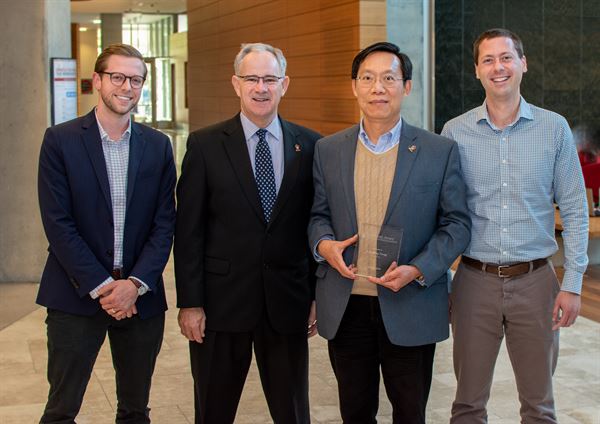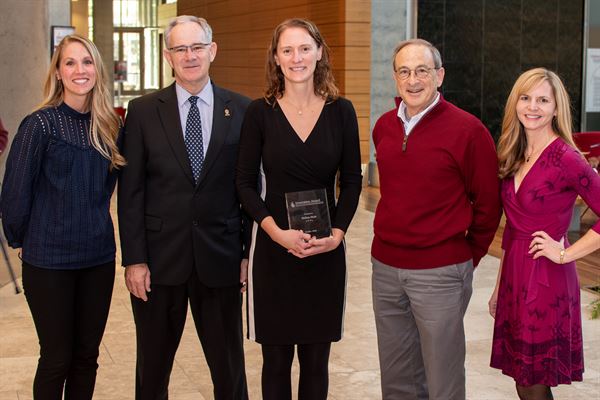CONTACT:
Jeanan Yasiri Moe, Director of Strategic Communications
[email protected] | 608.960.9892
MADISON, Wis. – A new method to create artificial vascular grafts and a technique for identifying cancer immunotherapy cells have taken top honors from WARF. The winning teams are led by Lih-Sheng (Tom) Turng and Melissa Skala.
At the ceremony honoring several of the year’s most outstanding UW–Madison inventions, WARF also announced that it has granted the university $73 million for the 2018-19 academic year.
See more about the grant here.
The small-diameter vascular grafts developed by Turng and Haoyang Mi (mechanical engineering) could be used in the treatment of cardiovascular diseases. Advantageously, the new grafts strongly mimic the properties of true blood vessels while reducing the threat of thrombosis.

Work by Skala and Alex Walsh (Morgridge Institute for Research) could bolster a cutting-edge cancer treatment called CAR T therapy, in which a patient’s own T cells are removed and modified outside the body. Skala and Walsh’s technology represents an improved way to screen and sort the useful cells prior to reinjection into the patient.

An independent panel of judges selected the Innovation Award winners from a field of seven finalists drawn from among approximately 400 invention disclosures submitted to WARF over the past 12 months. The winning inventions each receive an award of $10,000, with the funds going to the UW–Madison inventors named on the breakthroughs.
The other finalists included:
- Zongfu Yu, Yixuan Tan and Xingze Wang for a machine vision system that could help autonomous vehicles ‘see’ around corners
- Lev Ioffe, Lara Faoro and Robert McDermott for an improved qubit circuit to advance quantum computing
- John Yin for a target-guided peptide synthesis method that could also accelerate drug development
- Nathan Sherer and Ryan Behrens for a potential cure strategy for HIV
- Ann Palmenberg and Kelly Watters for the discovery of a cell receptor that could neutralize the common cold
About WARF
The Wisconsin Alumni Research Foundation (WARF) helps steward the cycle of research, discovery, commercialization and investment for the University of Wisconsin–Madison. Founded in 1925 as an independent, nonprofit foundation, WARF manages more than 2,000 licensing agreements and an investment portfolio of $2.7 billion as it funds university research, obtains patents for campus discoveries and licenses inventions to industry. For more information, visit warf.org.
###